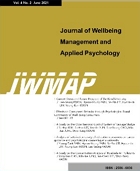- 권한신청
- E-ISSN2586-6036
- KCI
Behavior-induced Disposable Cup Automatic Separation X-Bin Study
KIM, Seo-Hyun (Department of Environmental health & Safety, Eulji University)
KIM, Ye-Na (Department of Environmental health & Safety, Eulji University)
BYUN, Hyo-Jeong (Department of Environmental health & Safety, Eulji University)
KWON, Lee-Seung (Department of Health Care Management, Catholic Kwandong University)
JUNG, Min-Jae (Department of Environmental health & Safety, Eulji University)
KWON, Woo-Taeg (Department of Environmental health & Safety, Eulji University)
Abstract
Purpose: This study seeks to develop behavior-induced automatic separation X-Bin for disposable cup speculators. Some students throw away the contents. Research design, data and methodology: Therefore, environmental beautification workers spend a lot of time sorting disposable cups at school garbage collection sites. Disposable cups that have been thrown away like this are bad in terms of appearance and smell. In addition, cleaning inside garbage affects recycling rates and is closely related to environmental problems. Results: Clean cleaning reduces the amount of garbage incinerated without being recycled and reduces the cost of recycling. According to Korean Social Trends 2020, COVID-19 began to spread, and recycling of disposable items such as disposable cups increased by about 15 percent from the same period last year. Conclusions: These are classified for recycling, and the amount of garbage thrown on the streets is estimated to be larger. In order to prevent COVID-19s, the use of disposable goods is inevitable, but facilities are needed to dispose of them properly.
- keywords
- Recycling, nudge, disposable products, environmental pollution, work environment improvement
- 다운로드 수
- 조회수
- 0KCI 피인용수
- 0WOS 피인용수














